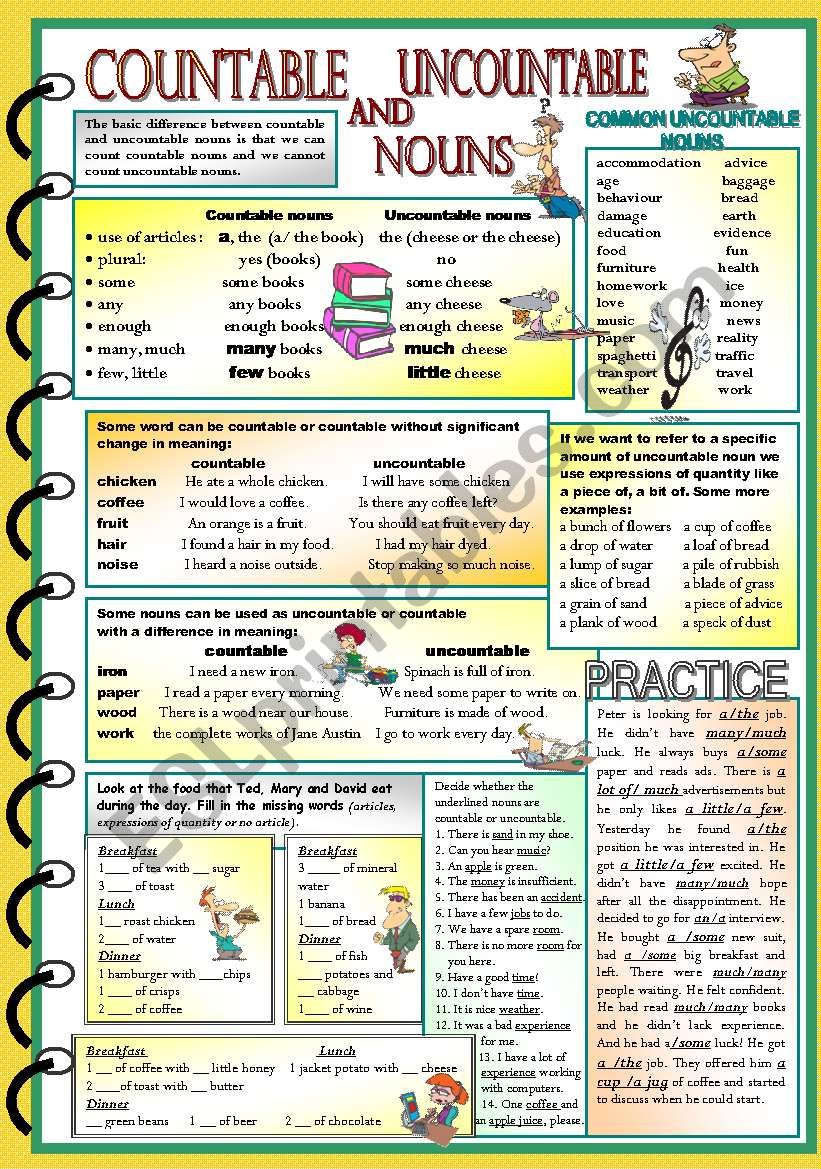
Countable and uncountable nouns ESL worksheet by ciortea
In English grammar, countable nouns are individual people, animals, places, things, or ideas which can be counted. Uncountable nouns are not individual objects, so they cannot be counted. Here, we'll take a look at countable and uncountable nouns and provide both countable noun examples and uncountable noun examples.
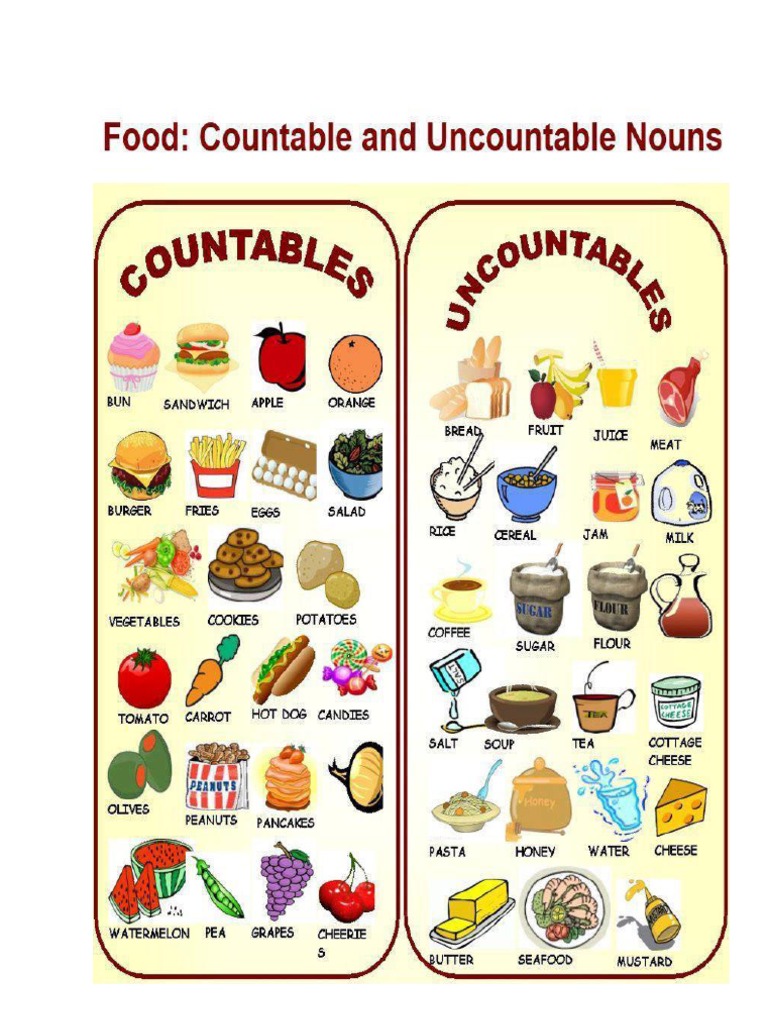
Countable And Uncountable Nouns Useful Rules Amp Examples 7esl Riset
Countable nouns can be counted, e.g. an apple, two apples, three apples, etc. Uncountable nouns cannot be counted, e.g. air, rice, water, etc. When you learn a new noun, you should check if it is countable or uncountable and note how it is used in a sentence. Countable nouns

COUNTABLEUNCOUNTABLE NOUNS Countable and uncontable nouns worksheet
Countable nouns Countable nouns are for things we can count using numbers. They have a singular and a plural form. The singular form can use the determiner "a" or "an". If you want to ask about the quantity of a countable
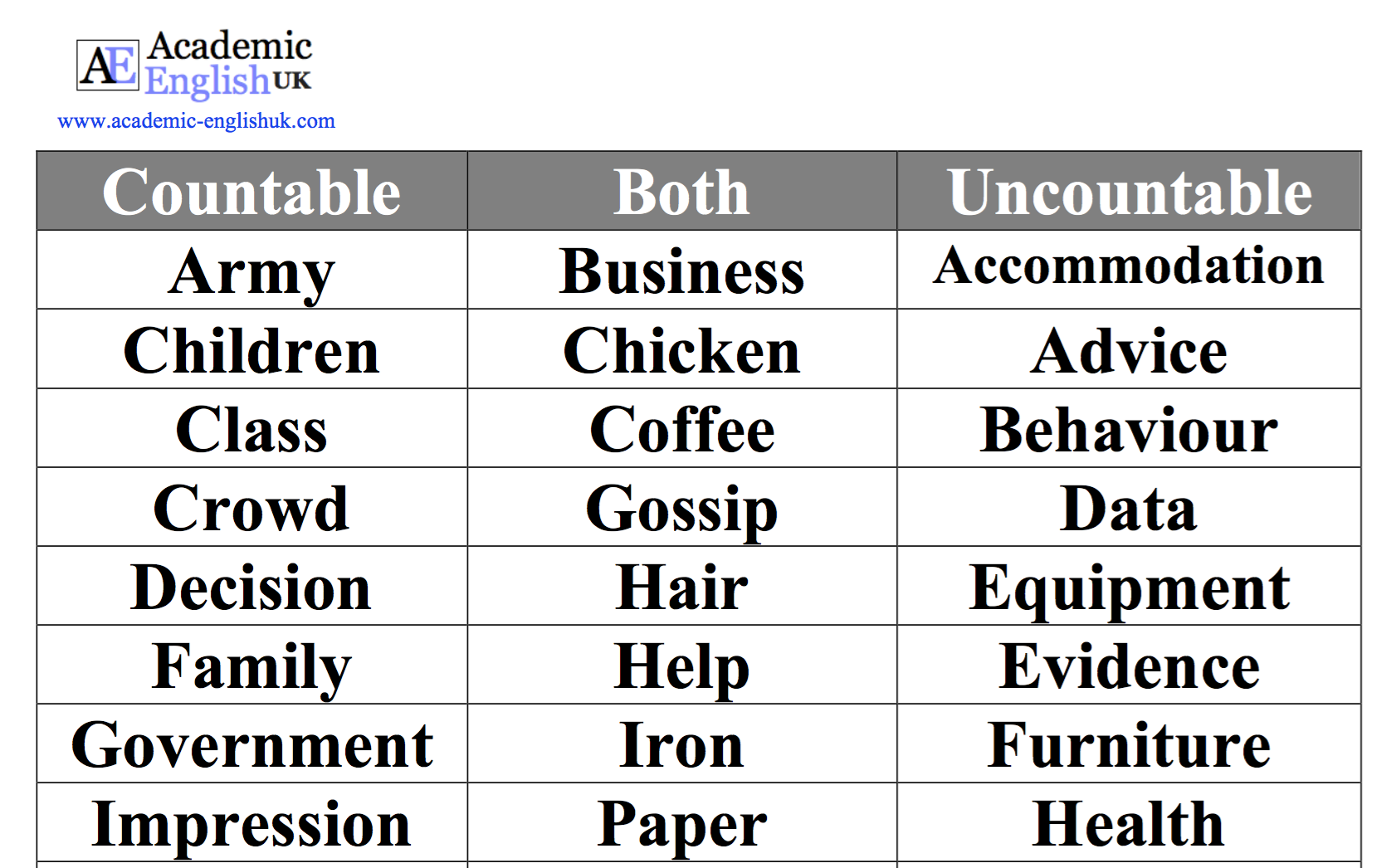
Countable Nouns
Countable (or count) nouns are words which can be counted. They have a singular form and a plural form. They usually refer to things. Most countable nouns become plural by adding an 's' at the end of the word. For example: chairs. students. Uncountable (or non-count) nouns are words which cannot be counted.

Countable and Uncountable Nouns YouTube
Instructions 0:00 / 3:24 720p Transcript Some nouns in English are countable - we can use them in singular and plural forms. Some are uncountable - they only have one form. We often use a/an with singular countable nouns and some with plurals. We can also use some with uncountable nouns. What are examples of countable nouns? Here are a few:
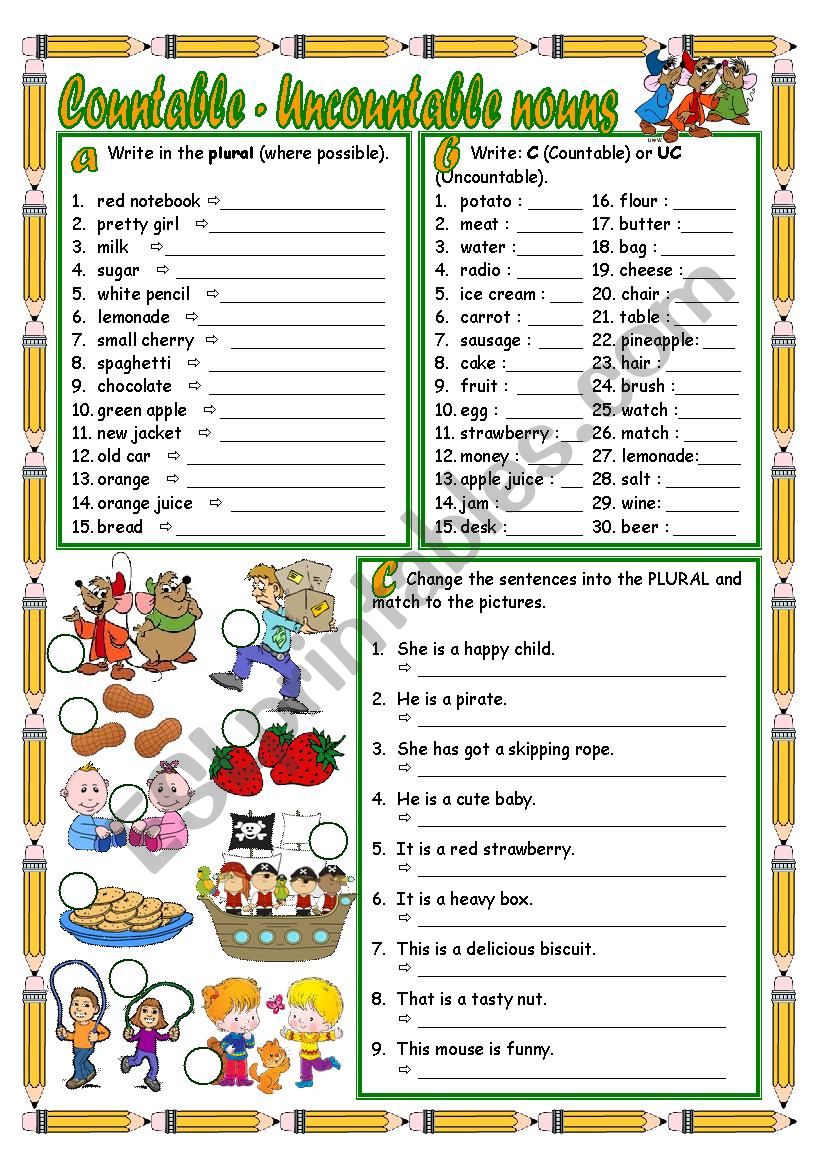
Countable And Uncountable Nouns With Their Rules Download Pdf Nouns Images
A countable noun, according to the Cambridge Dictionary, is defined as "a noun that has both a singular and a plural form and names something that can be counted because there can be one or more of it". The Macmillan Dictionary defines a countable noun as "a noun that has singular and plural forms.
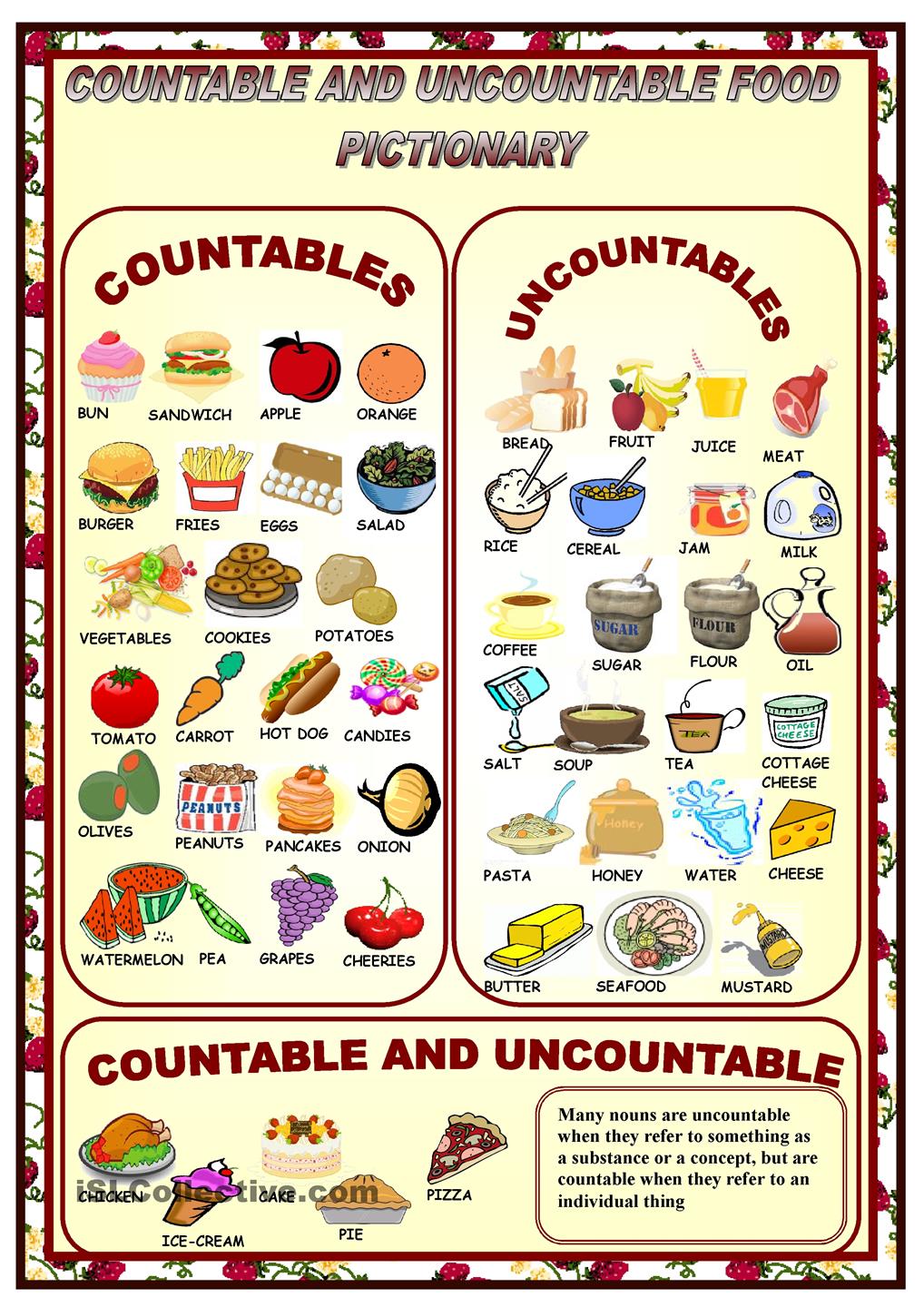
RainbowinLACOVA Countable and uncountable nouns
Countable nouns are nouns that are distinct and easily countable objects, people, animals, etc. Common examples of countable nouns are apples, houses, or dogs. If you can ask "How many ____ are there?" then you have a countable noun. Countable nouns have a singular and plural form. For example, I have one apple, but he has two apples .
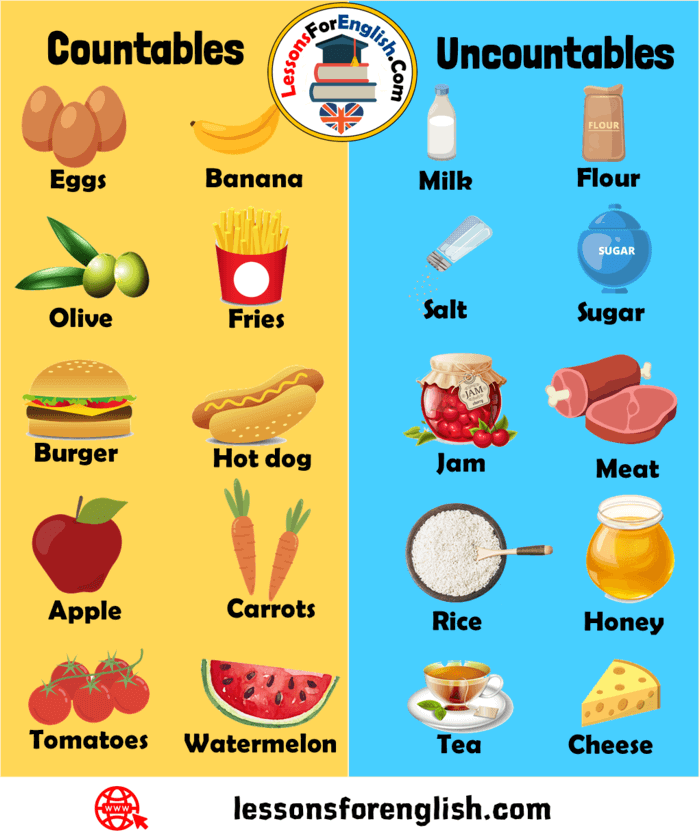
Countable and Uncountable Nouns List, 100 Countable and Uncountable
An uncountable noun, mass noun, or non-countable noun is a type of noun whose substance is indivisible or uncountable. It can be food, weather, chemical elements, or collective nouns. Some uncountable noun examples include honey, oxygen, snow, and equipment. An uncountable noun may also refer to abstract ideas.
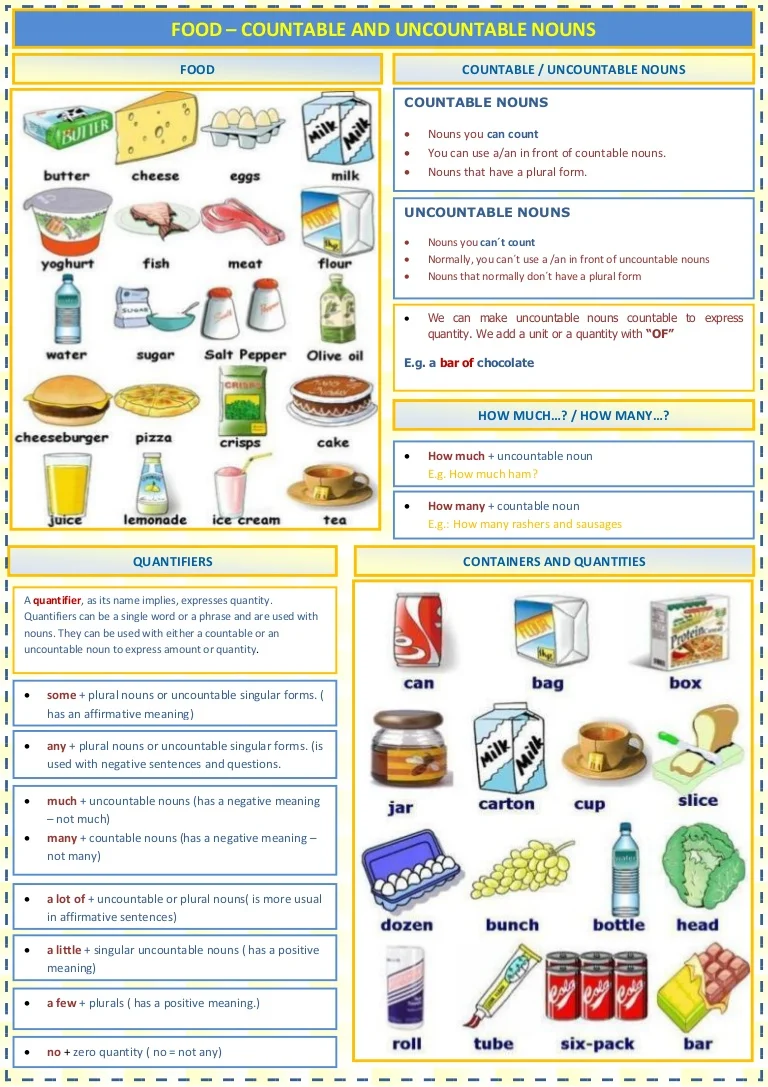
Countable & uncountable nouns
To count or quantify an uncountable noun we use a unit of measurement - a measure word. For example, we cannot usually say "two breads" because "bread" is uncountable. So, if we want to specify a quantity of bread we use a measure word such as "loaf" or "slice" in a structure like "two loaves of bread" or "two slices of bread".
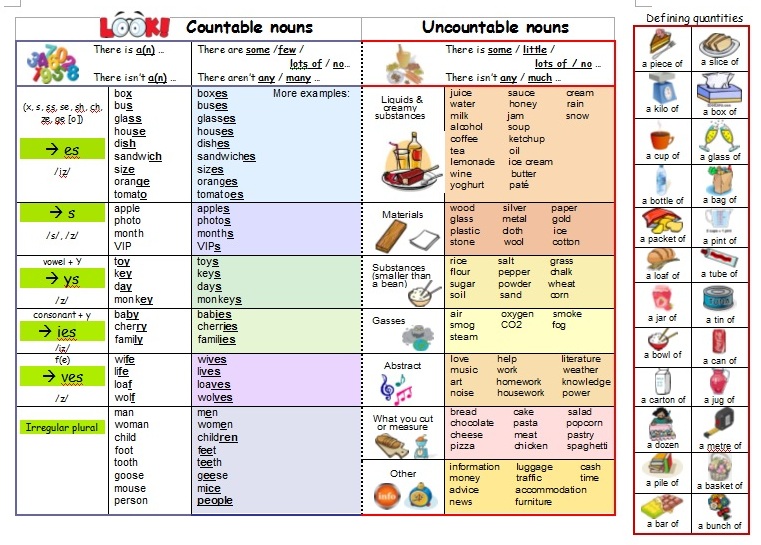
Countable nouns uncountable nouns learning using pictures
Objects, ideas, and places can all be nouns. Every noun is either countable or uncountable. Countable nouns are nouns you can count, and uncountable nouns are nouns you can't count. Countable nouns can take the singular or the plural form of a verb. Uncountable nouns always take the singular form of the verb. Study the rules and examples below.
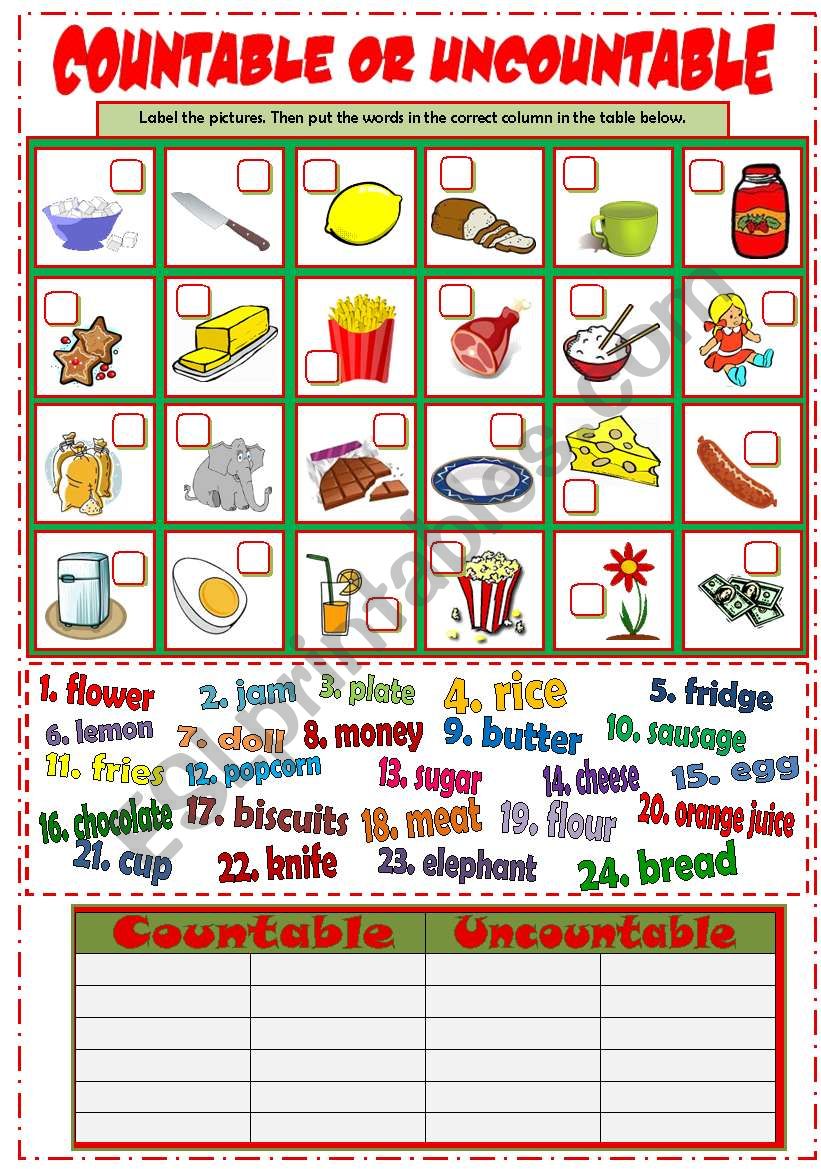
Countable And Uncountable Nouns Images 17 Worksheets On Countable And
Uncountable nouns, also known as mass nouns or noncount nouns, refer to a mass of something or an abstract concept that can't be counted (except with a unit of measurement). In contrast, countable nouns can be counted as individual items.
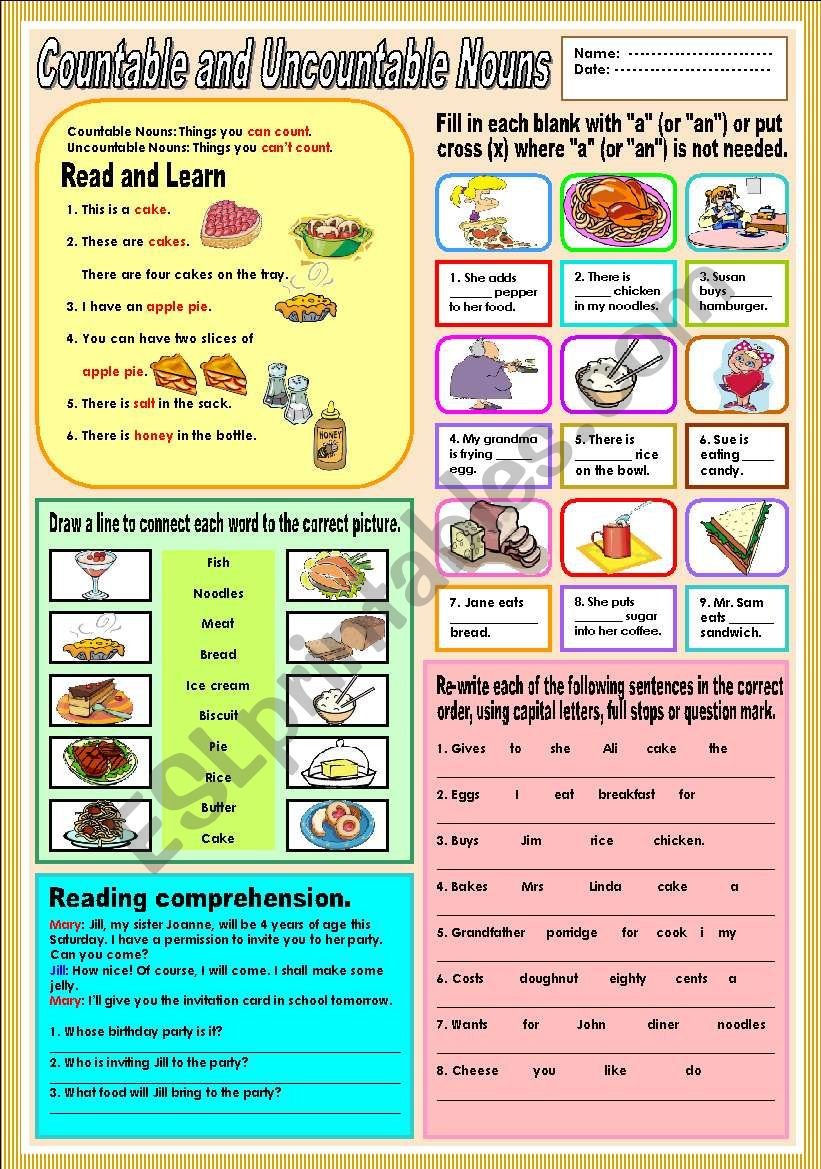
Countable and Uncountable nouns 3 ESL worksheet by Ayrin
Countable nouns refer to individual things and we can use them in the singular or plural (e.g. coin/coins ). Most nouns in the English language are countable. Uncountable nouns, also known as mass nouns, refer to things we consider a whole or mass and cannot be counted (e.g. money ). Many abstract nouns (e.g. happiness) are uncountable in English.
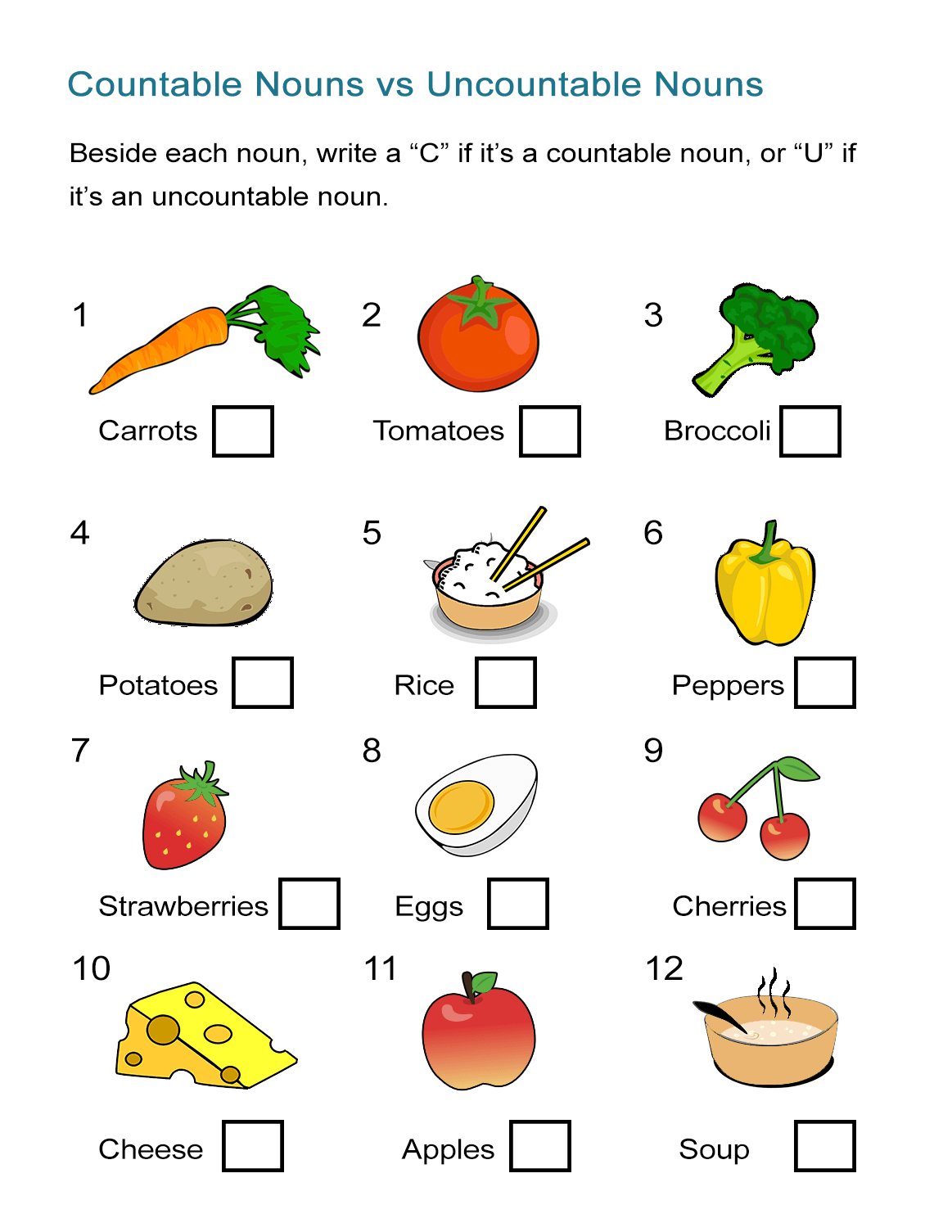
a an some countable uncountable nouns worksheet countable uncountable
The major division of English nouns is into "countable" and "uncountable". Countable nouns are easy to recognize. They are things that we can count. For example: "pen". We can count pens. We can have one, two, three or more pens. Here are some more countable nouns: dog, cat, animal, man, person;
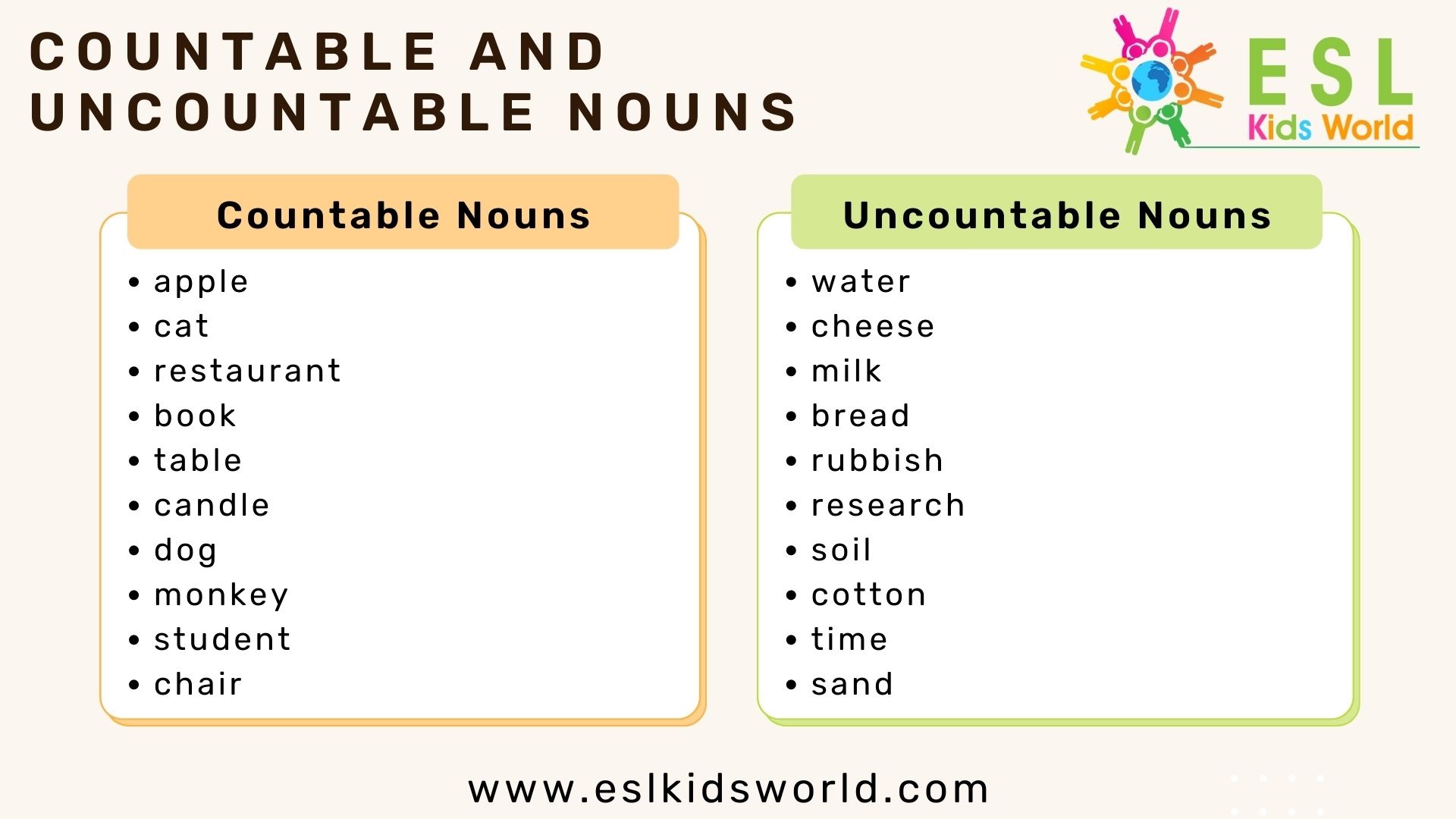
Countable and Uncountable Nouns Countable or Uncountable Noun? ESL
Countable Nouns Countable nouns are the things that we can count. For example, one book, three chairs, one room, etc. Countable nouns can be singular or plural such as chair (singular), chairs (plural). Uncountable Nouns Uncountable nouns are the things that we cannot count. For example, sand, advice and yoga etc. These words are in singular form.
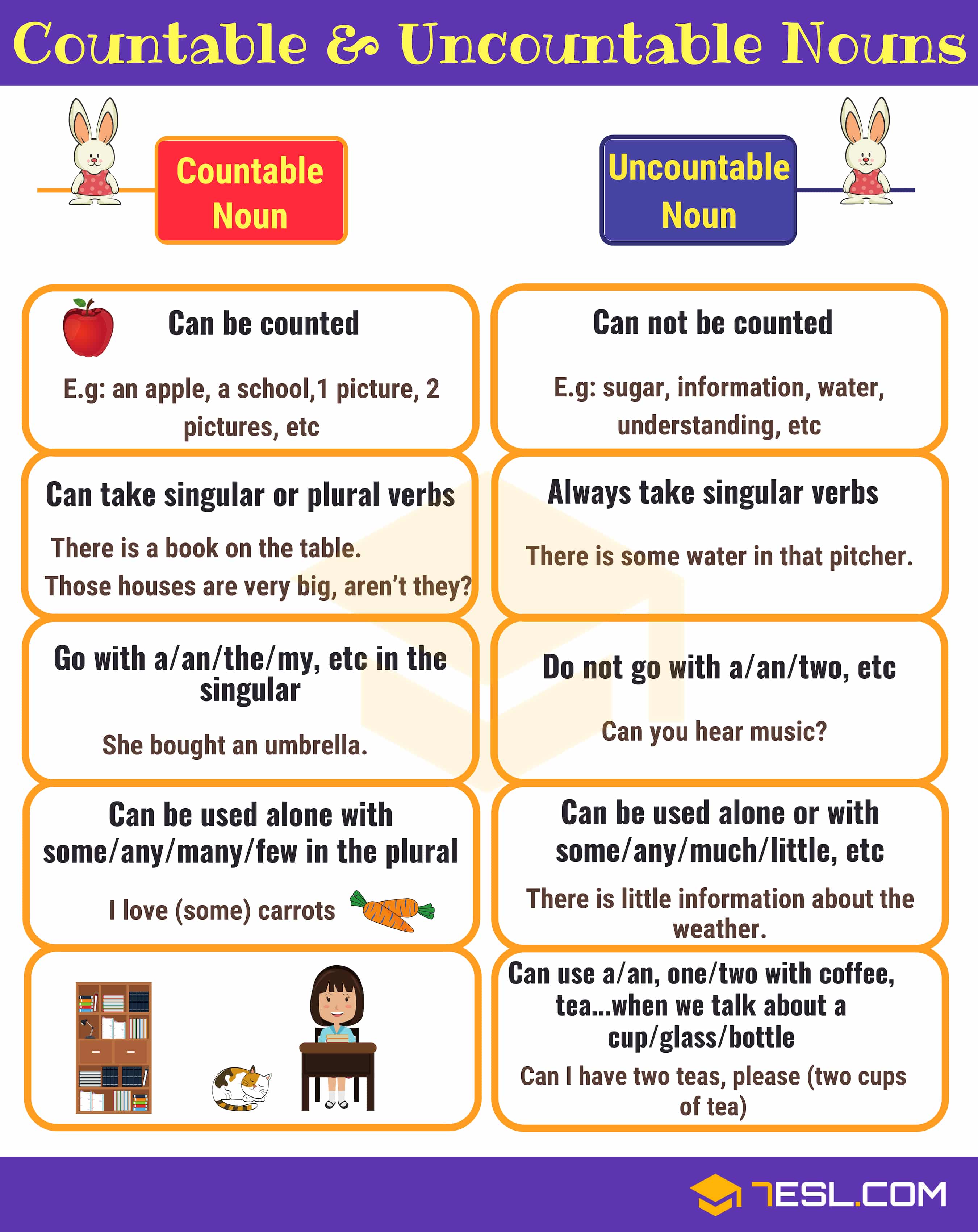
Countable and Uncountable Nouns Useful Rules & Examples • 7ESL
Uncountable nouns, or mass nouns, are nouns that come in a state or quantity that is impossible to count; liquids are uncountable, as are things that act like liquids (sand, air). Abstract ideas like creativity or courage are also uncountable.
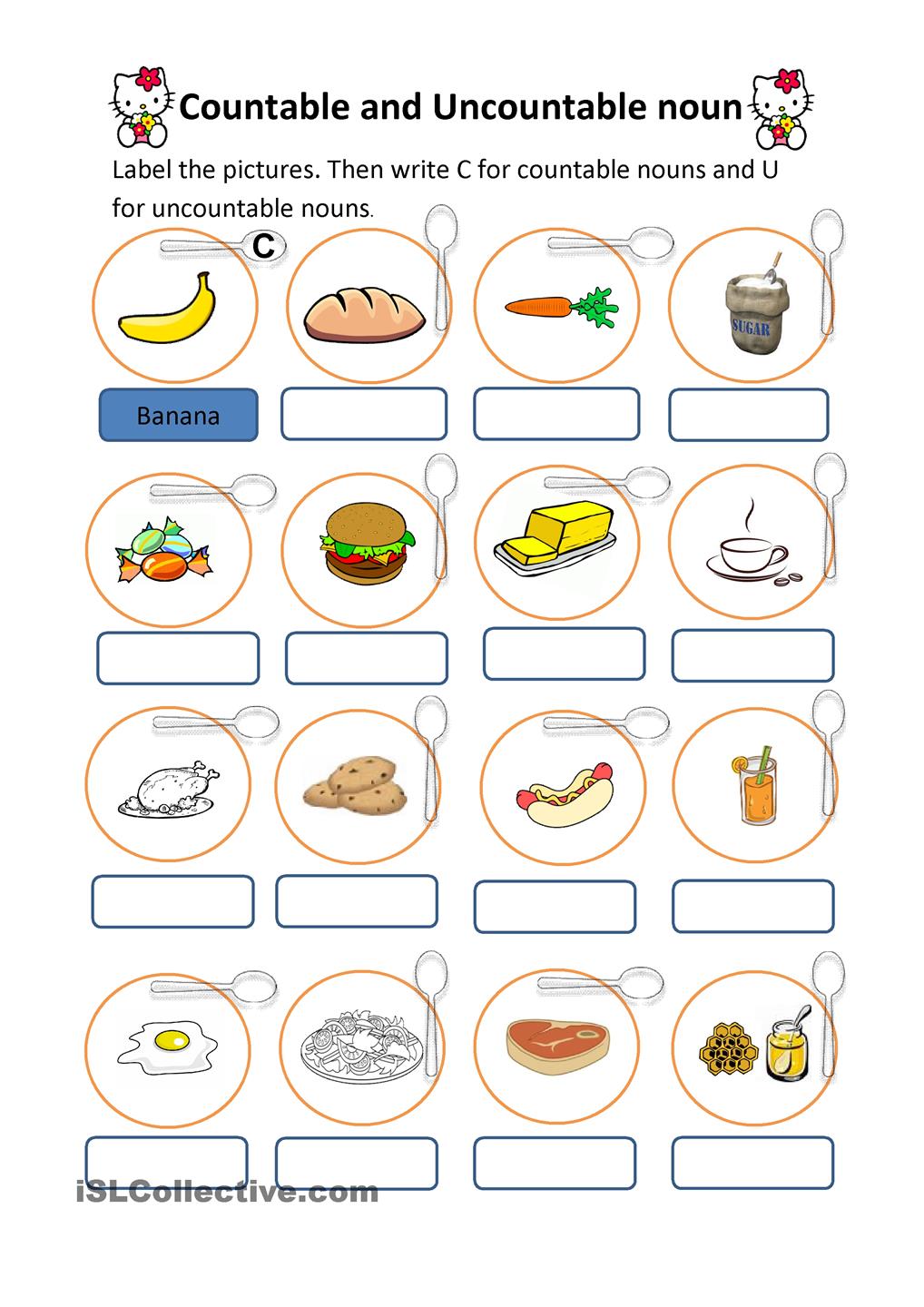
Countable And Uncountable Nouns Worksheets Samples
We can use countable nouns for things we can count. They can be singular or plural. I've got a book, but she's got two books. We can use uncountable nouns for things we can't count. There's some bread and cheese on the table. How to use them Use a or an before singular nouns. Use some before plural nouns and uncountable nouns in positive sentences.